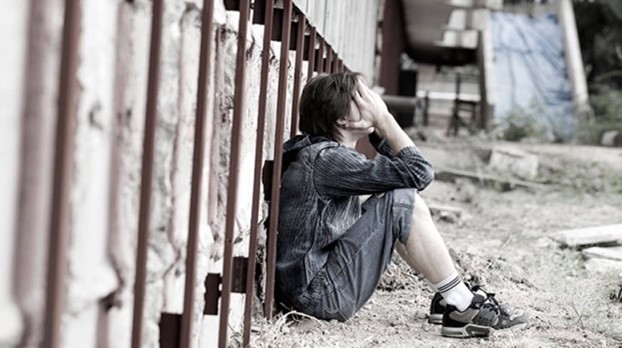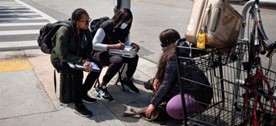By Matthew Marasli
While homeless youth navigate living life on the street, personal health is not among their top priorities. We spoke with two StandUp for Kids case managers to find out how homeless youth begin to navigate their health throughout the rehousing process.
Among homeless youth, there is a general lack of prioritizing personal health. Many kids living on the street were never taught how to take care of themselves without the support of a parent or guardian. As a result, there is a significant lack of health literacy among homeless youth when it comes to taking care of personal health.

“When kids are first introduced, we ask them when the last time they’ve had a doctor’s visit was. Most can’t remember.” – StandUp for Kids case manager
A lack of knowledge of available healthcare resources and limited transportation are major barriers for homeless youth to accessing healthcare. Living on the street opens vulnerabilities to feeling unwell both physically and mentally. Most youth living on the street suffer from undiagnosed mental health issues and often express symptoms of anxiety, depression, or PTSD.
“Many of our kids know that their mental health problems will solve themselves once they are housed.” – StandUp for Kids case manager
During the rehousing process, many youth begin learning how to navigate healthcare and might start addressing what’s bothering their health. Because StandUp for Kids prioritizes housing first, we refer youth to agencies that specialize in helping them receive healthcare. However, issues with public systems prevent many kids from receiving care in a timely and efficient manner. Though there are public healthcare options for youth through Medical, the large influx of patients can overwhelm health resources, thus causing long waiting periods before receiving care.

“Because the public system is overcrowded, it can take weeks for a kid to get the care they need.” – StandUp for Kids case manager
Focusing on addressing health issues becomes part of the readjustment process for many youth going through our rehousing process. During this time, some might have undiagnosed mental or physical health issues and start to prioritize facing those concerns. That said, the readjustment process differs from case to case. Youth who have moved in with a sibling or a partner have a considerably easier time maintaining their health than those living by themselves. In addition, many of the healthcare resources for homeless youth become unavailable once rehoused. As a result, StandUp for Kids helps connect newly housed youth with resources to ease the readjustment process.
There are several other ways StandUp for Kids helps rehoused youth through the readjustment process. Primarily, we help youth learn how to focus on prioritizing budgeting to be able to keep up with payments. In addition, we check in monthly on newly housed youth for their first 12 months and annually on a case-by-case basis.
